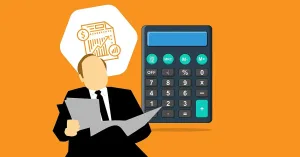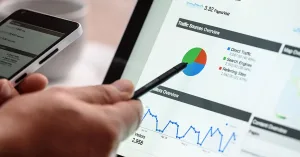If you are a small business owner in the US, it's very likely your business is suffering as a result of the pandemic. Financial assistance has and continues to be offered to small businesses by the US government, but the sad part is the first round of business stimulus money, providing PPP (Payroll Protection Program) loans were gobbled up in record time. The worst part of this is that huge corporations and conglomerates took a major chunk of that stimulus money, leaving regular small business owners in the lurch.
Here at the Rules of Thumb blog from MoneyThumb, we always try to help our readers stay informed about things that matter to you. We have many customers who are small business owners and use our PDF financial file converters for their financial needs as a small business. We realize that many of you have been sorely affected by this pandemic and we strongly sympathize with your plight. The best way we know to assist you today is to clear up any misunderstandings you may have about the US government bailout programs for small businesses. This way, you will know where you stand and how to get money to keep your business afloat as quickly and efficiently as you can.
Our extensive research this morning led us to two articles we feel explain the US small business bailouts the best. Links to those two articles and a short description of what each article contains are listed below:
A Crash Course in the Small Business Bailout--This article is from Barron's. It was written on April 10, 2020, so it was meant to cover details of the first small business stimulus package, PPP, which as we said was used up very quickly, mostly by large corporations. (After much outrage, several corporations, such as Ruth Chris Steakhouse, have returned the money they received back to the government.) The information included in this article still helps explain a lot about the US government's small business stimulus and how to successfully maneuver the process. The article was written by Jared Hecht, CEO, and co-founder of Fundera, a marketplace for small business loans. Mr. Hecht has this to say in the article introduction, "I’ve personally had about 70 conversations with different banks along the way, and I’ve learned a ton about how this brand-new process works—and doesn’t." So we feel confident that the information you will glean from this article will help you as a small business owner overcome obstacles to getting financial help from the government during these trying times.
Confused by the Government's Small Business Loan Program? You are Not Alone: Here is Your Guide--This article is from USA Today and was written yesterday, April 23, 2020. The article is in a Q & A format. USA TODAY reporters Ledyard King and Paul Davidson interviewed several experts to answer questions about how small businesses can best maneuver the US government bailouts. One major question small business owners have is whether or not they have to repay the loan. Here is an answer to that question from the aforementioned article, "The portion of the loan that covers eight weeks of expenses does not have to be paid back if at least 75% of the money is spent keeping or rehiring workers. Otherwise, it carries a 1% interest rate and must be paid back within two years." Another pertinent question is how will this stimulus package differ from the first one when it comes to big corporations taking all the money before small businesses can benefit. Here is the answer, "To partly address the issue, $60 billion of the new funding is to be set aside for community-based lenders, smaller banks, and credit unions to assist smaller businesses."
The Rules of Thumb blog from MoneyThumb believes you will find all the answers you need as a small business owner on how to get US stimulus money for your business from the above articles. However, if you have a question you don't find the answer to in either of the above-referenced articles, by all means, leave us a comment below and we will find the answer for you.
Be aware that if you need to convert your small business bank statements as part of the loan process, we have a version of our PDF financial file converters specifically designed for small businesses. The time you save using our product should help you get to the front of the loan line much more quickly.





















Add comment